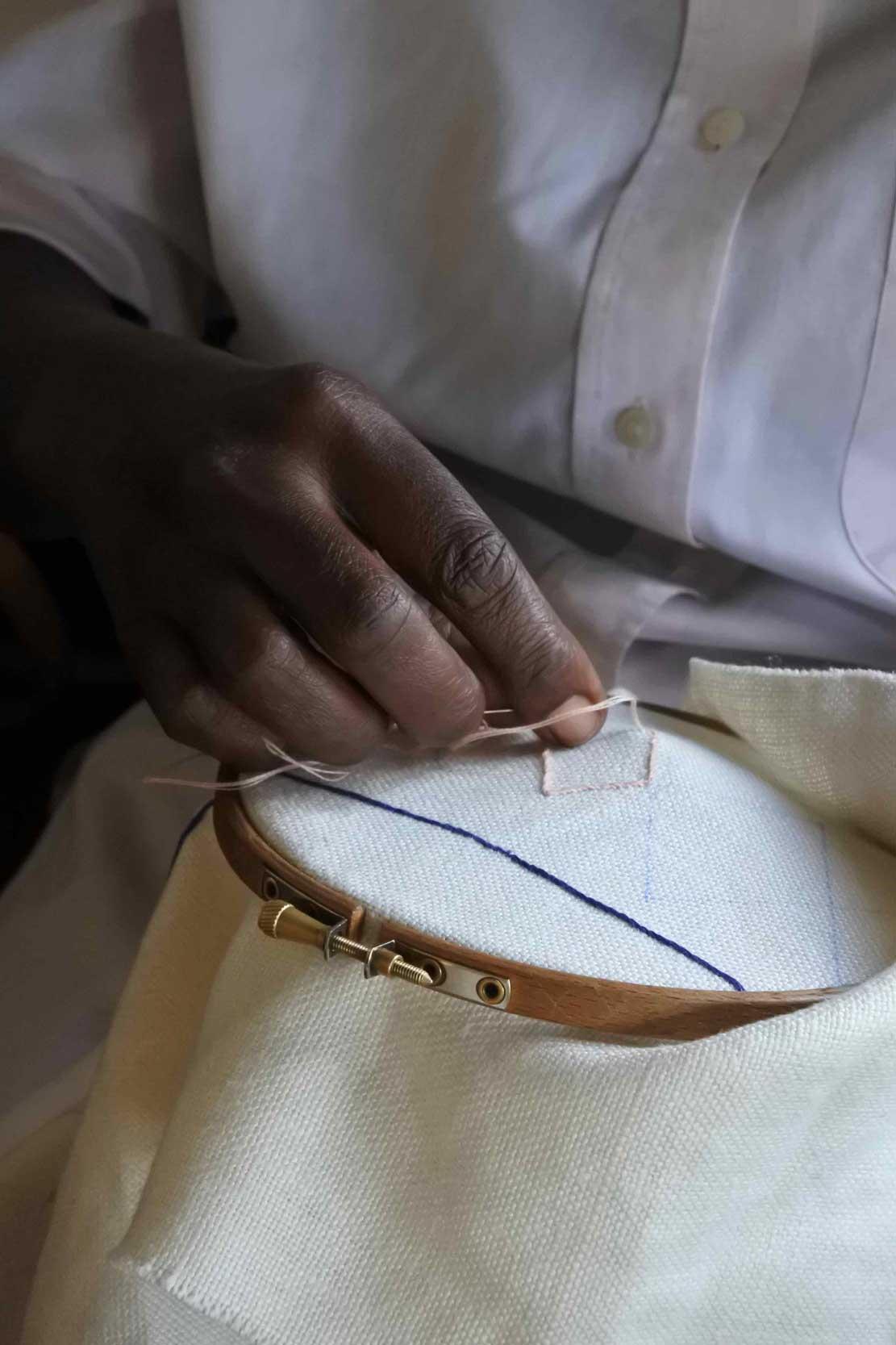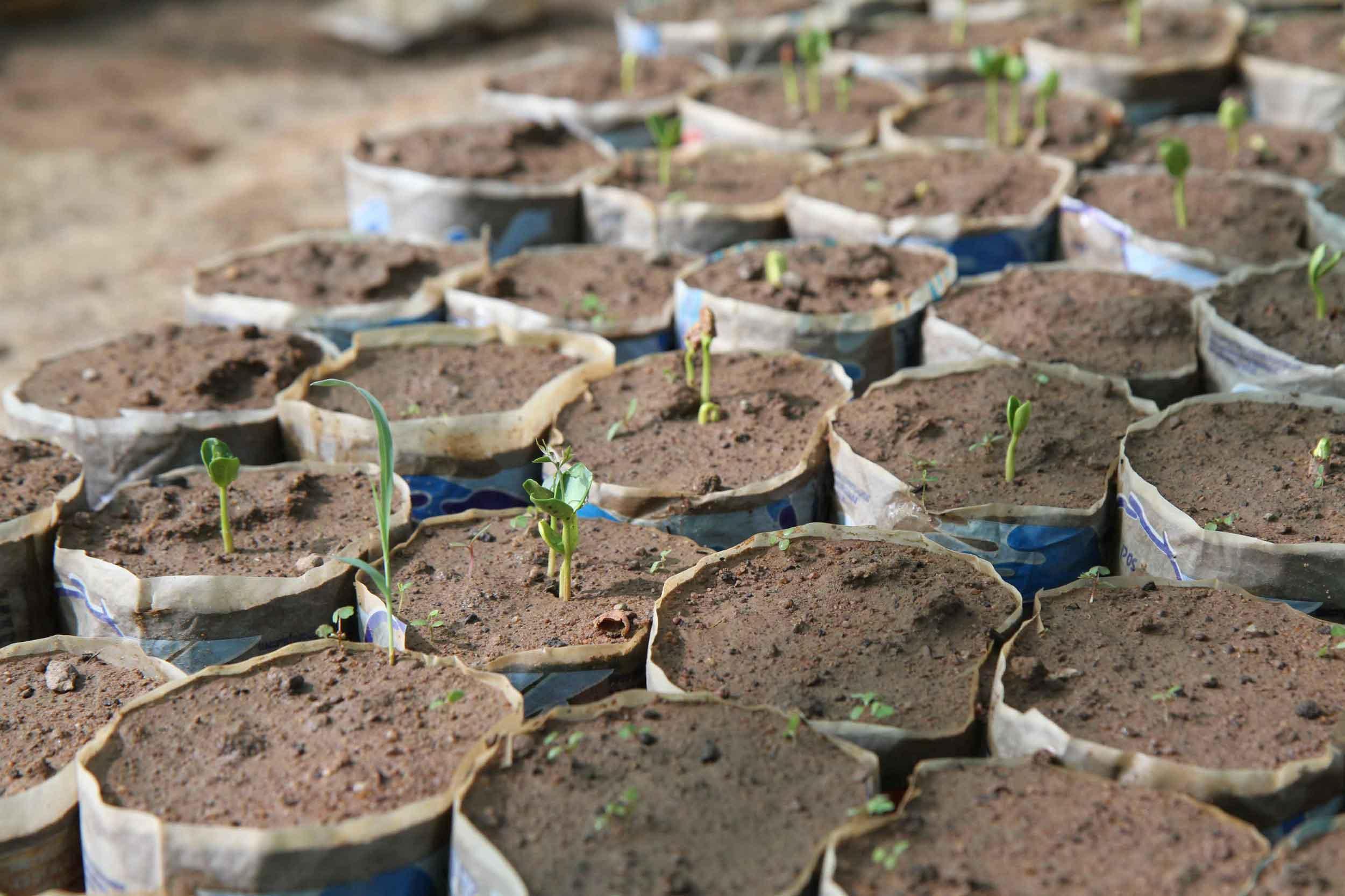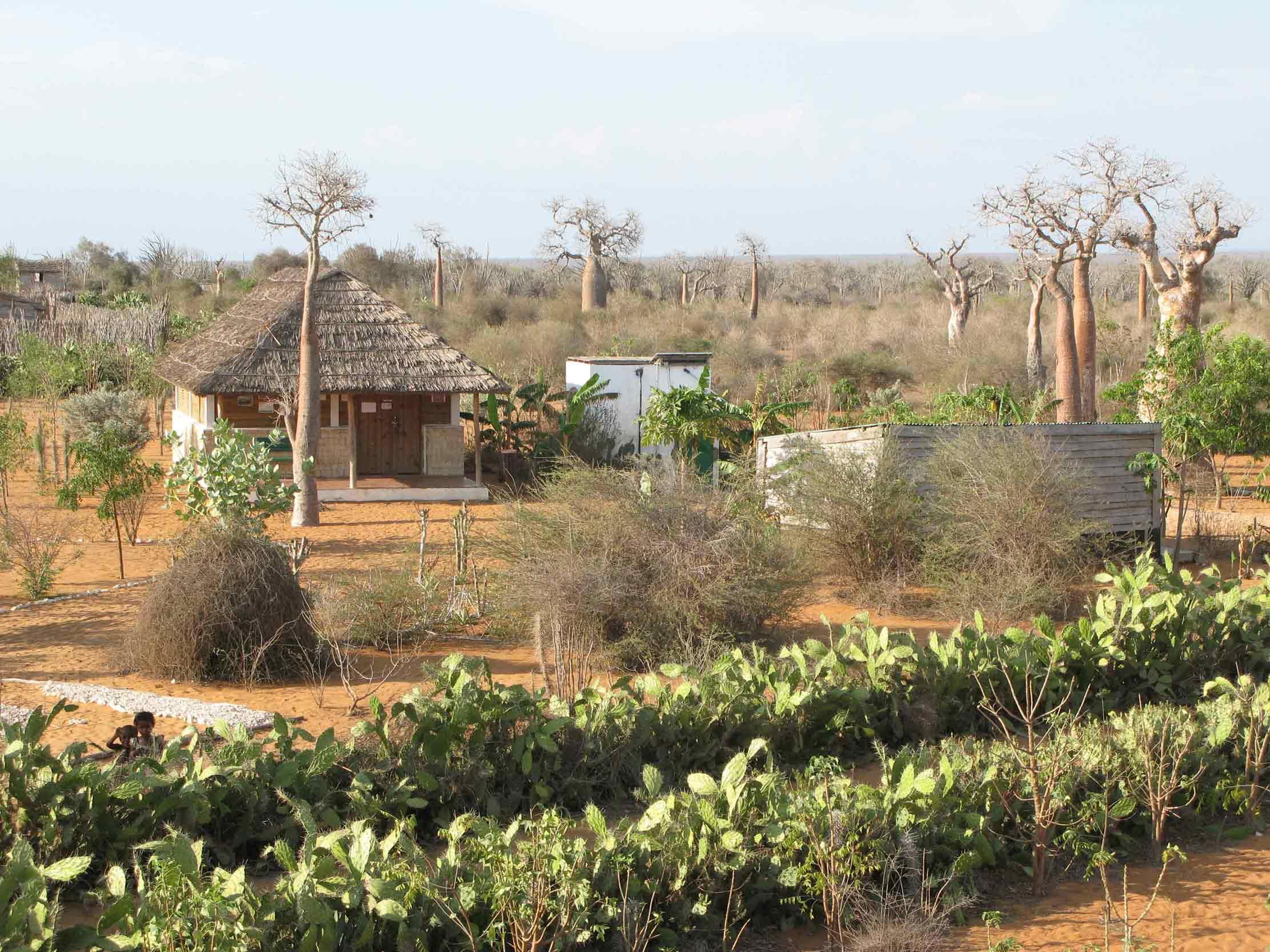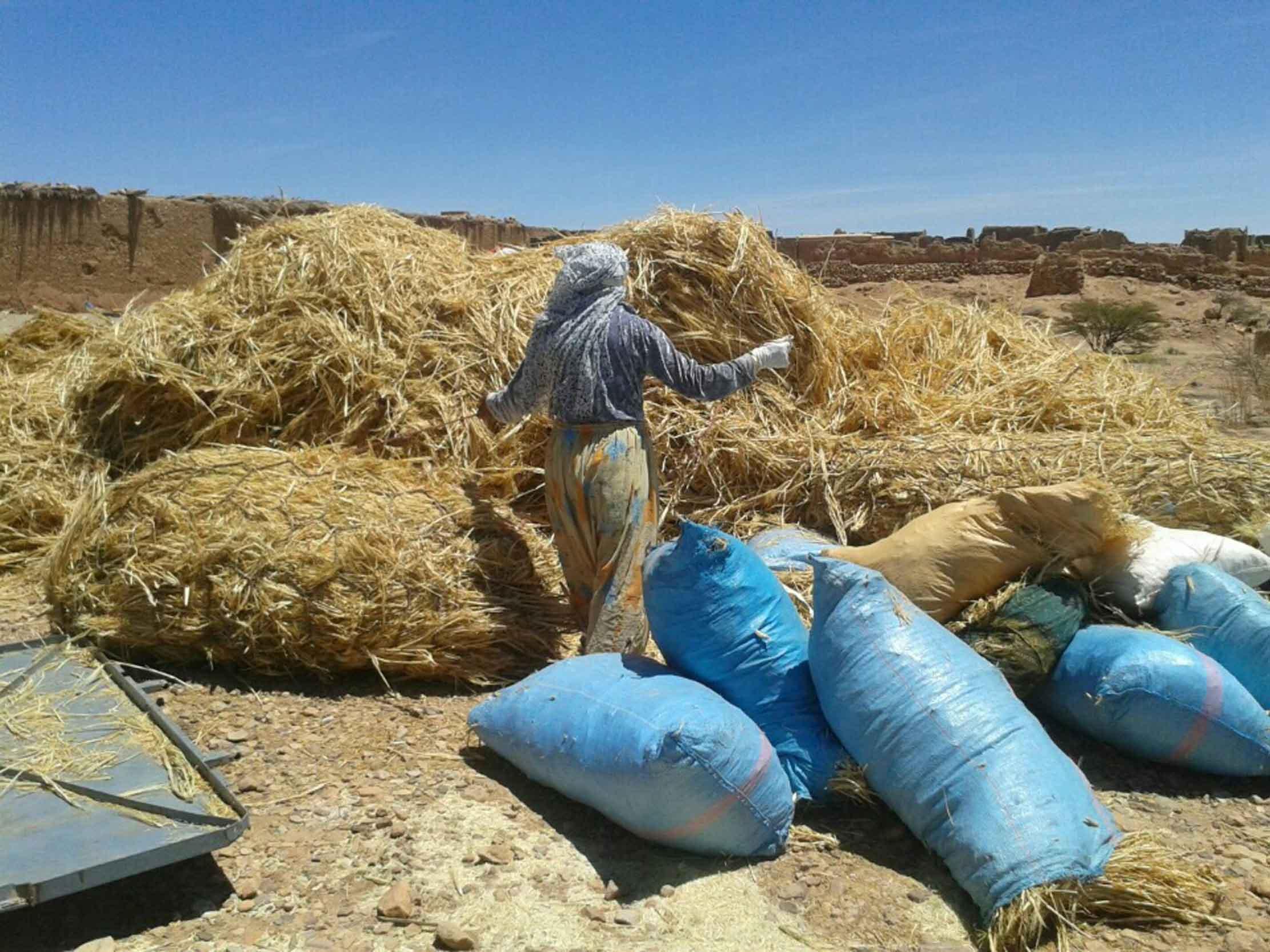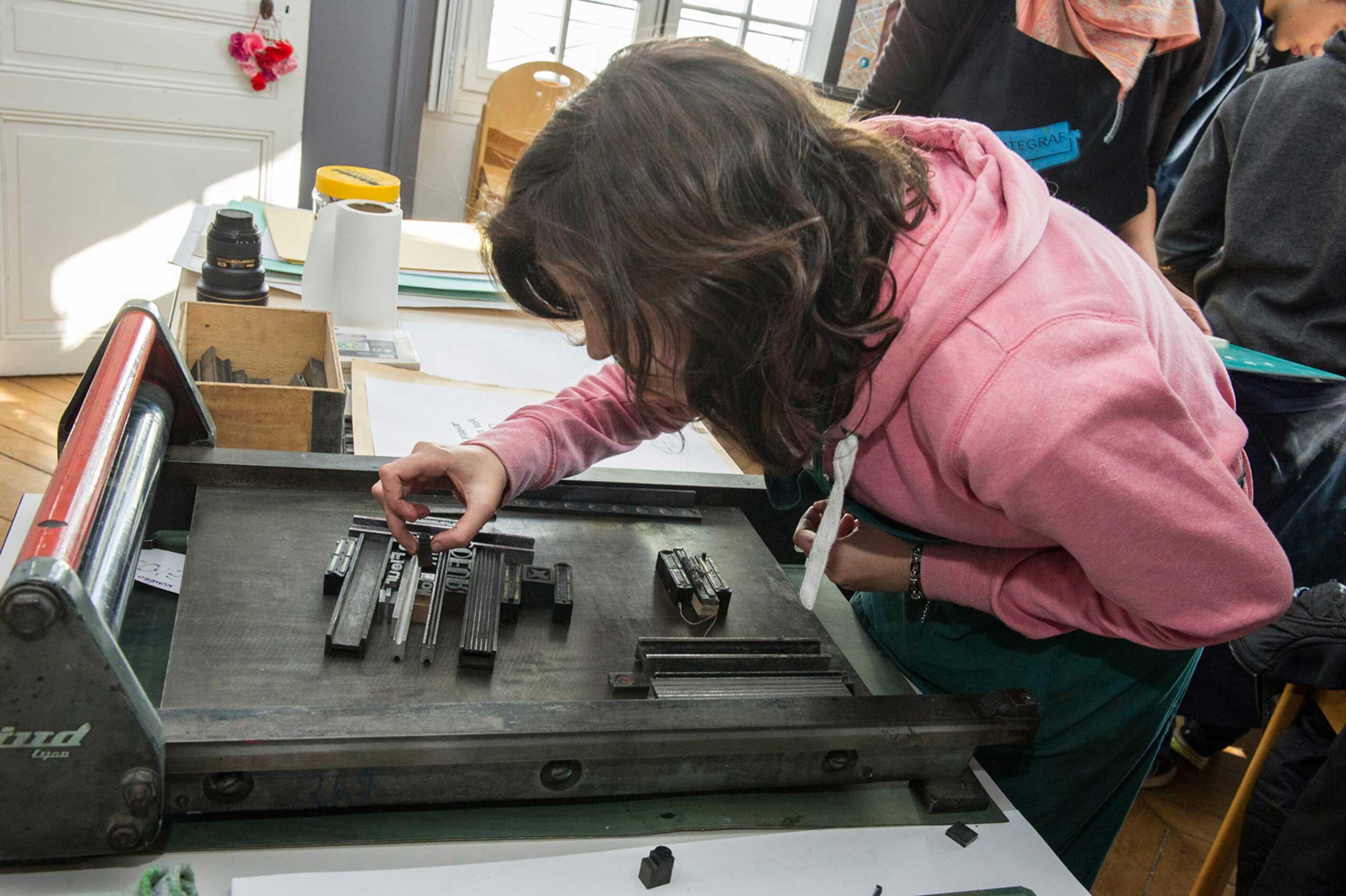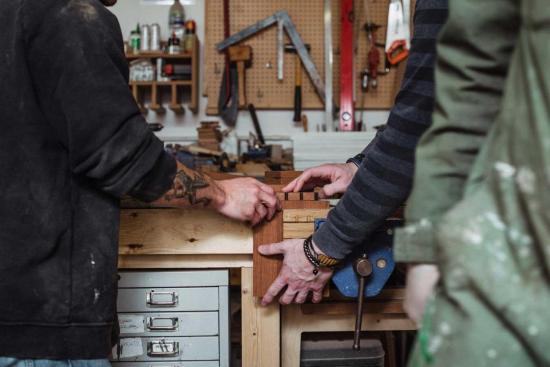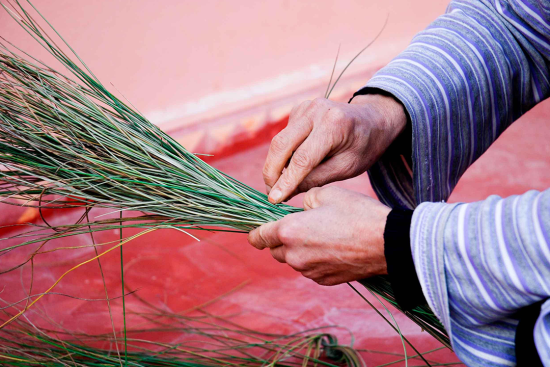Plusieurs projets soutenus concernent la transmission de savoir-faire et la formation professionnelle.
Au Brésil, dans la favela de Vila Prudente à São Paulo, l’association Arca do Saber a ouvert un centre de formation. Des jeunes apprennent divers métiers (dont celui de boulanger) et suivent une formation complémentaire en anglais et informatique.
En France, la Maison familiale rurale Le Village, située en Isère, offre différentes possibilités d’orientation à des adolescents en situation de décrochage scolaire.
À Chambéry, le projet du Mini-Racing permet à d’autres de fabriquer collectivement des répliques de voitures de Formule 1, sous la houlette d’experts adultes.
Dans le Limousin, les amis du site du château de Lavauguyon se mobilisent. Sous la conduite d’un compagnon tailleur de pierres et d’un technicien du génie civil, de jeunes bénévoles ont participé à un chantier de restauration du site dans le respect des techniques traditionnelles.
Dans le Rhône, l’association française des éleveurs de chèvres cachemire a fait l’acquisition d’une éjarreuse. Les objectifs ? Préserver leur savoir-faire textile et redynamiser la production locale de cachemire.
À Londres, à la Goldfinger Factory, un apprenti a été initié pendant deux ans à la menuiserie, l’ébénisterie, la ferronnerie et la peinture. Cette formation professionnelle lui permet aujourd’hui d’embrasser une carrière artisanale.
Au Rwanda, l’association Ibaba Développement relance l’activité de broderie qui florissait dans un village avant le génocide de 1994. Le projet vise à construire un atelier-école et à former de nouvelles brodeuses, qui elles-mêmes seront amenées à transmettre leurs pratiques.
En Inde, à Kolkata, Entrepreneurs du Monde a mis en place soixante-quinze centres de formation pour donner la possibilité à des femmes en grande précarité de s’initier à la couture et à la broderie.
À l’occasion de cette deuxième édition de H³, quatre projets ont conduit des enfants et des adolescents à s’ouvrir au monde grâce à la pratique artistique.
En Allemagne, à la Münchner Kammerspiele, de jeunes réfugiés sans famille et des jeunes aux situations sociales fragiles ont constitué une troupe. Encadrés par des professionnels, ils ont présenté un spectacle inédit au public du théâtre.
En Australie, la Sydney Dance Company a créé son premier spectacle jeune public. La pièce a été jouée dans les établissements scolaires de l’ouest de Sydney et les élèves ont participé à des ateliers de pratique de danse.
En France, la Fondation Maître Léonard Foujita sensibilise à la création contemporaine des lycéens engagés dans des filières professionnelles.
À New York, le Lower Eastside Girls Club initie gratuitement aux savoir-faire artisanaux des jeunes filles vivant sous le seuil de pauvreté, majoritairement issues des communautés latinos et afro-américaines.
Dans des contextes très différents, quatre projets incarnent des gestes de solidarité destinés à épauler les personnes les plus fragiles et à atténuer les dommages de l’isolement.
Au Maroc, l’association Jeunesse Tizgui pour le développement et la solidarité accompagne des villageois dans leur projet de boulangerie communautaire. Sa création devrait permettre à des femmes de gagner en autonomie, grâce à un emploi.
À Athènes, la Fondation soutient le fonctionnement quotidien d’une maison de répit située au cœur du Cerebral Palsy Greece, un centre d’accueil pour enfants et adultes souffrant d’infirmité motrice cérébrale.
À Hong-Kong, au Lunch Club créé par la French Chamber Foundation, des personnes en situation de précarité ont accès pour une somme modique à des repas équilibrés et à des conseils professionnels.
Au Japon, Sokoage s’adresse à la jeunesse d’une région très affectée par le tsunami de 2011. L’association propose des ateliers, visites et rencontres.
Partout, des hommes et des femmes s’engagent pour la préservation de la biodiversité.
Au Japon, l’association Coral Okinawa organise des campagnes de plantation de corail sur les récifs de l’île d’Okinawa, ainsi que des activités ouvertes à tous pour favoriser la connaissance de cet écosystème.
Dans la baie de Manille, les bénévoles de Mercy Relief encadrent la population dans la replantation d’une mangrove. Une reforestation essentielle dans cette zone fortement exposée aux cyclones. La présence de jacinthes d’eau permet également de revitaliser un savoir-faire artisanal local.
Au Burkina Faso, le Service d’Entraide et de Liaison accompagne l’aménagement d’un périmètre bocager afin de remédier à la dégradation de l’environnement rural. Les populations sont formées à des techniques agricoles durables.
À Londres, près du Lycée international Winston Churchill, se trouve un espace vert planté d’arbres in memoriam. Jusqu’alors peu entretenu, ce jardin fait l’objet d’un projet écologique et pédagogique destiné aux élèves de l’établissement.
En France, à l’initiative de l’association J’Art d’Ain partagé, des écoliers ont accès à plusieurs jardins partagés aménagés en privilégiant des techniques agro-écologiques.
À Madagascar, l’association Partage accompagne des écoliers dans de multiples actions d’information sur l’environnement. Ils participent à des classes vertes, ainsi qu’à des activités de plantation d’essences locales et de sensibilisation à la gestion des déchets.
Au Liban, l’association arcenciel aide à renforcer les savoir-faire en matière de conservation forestière. Dans la réserve naturelle du Chouf, de jeunes adultes sont notamment formés à l’aménagement de sentiers et à la prévention des incendies, avant de devenir formateurs à leur tour.
